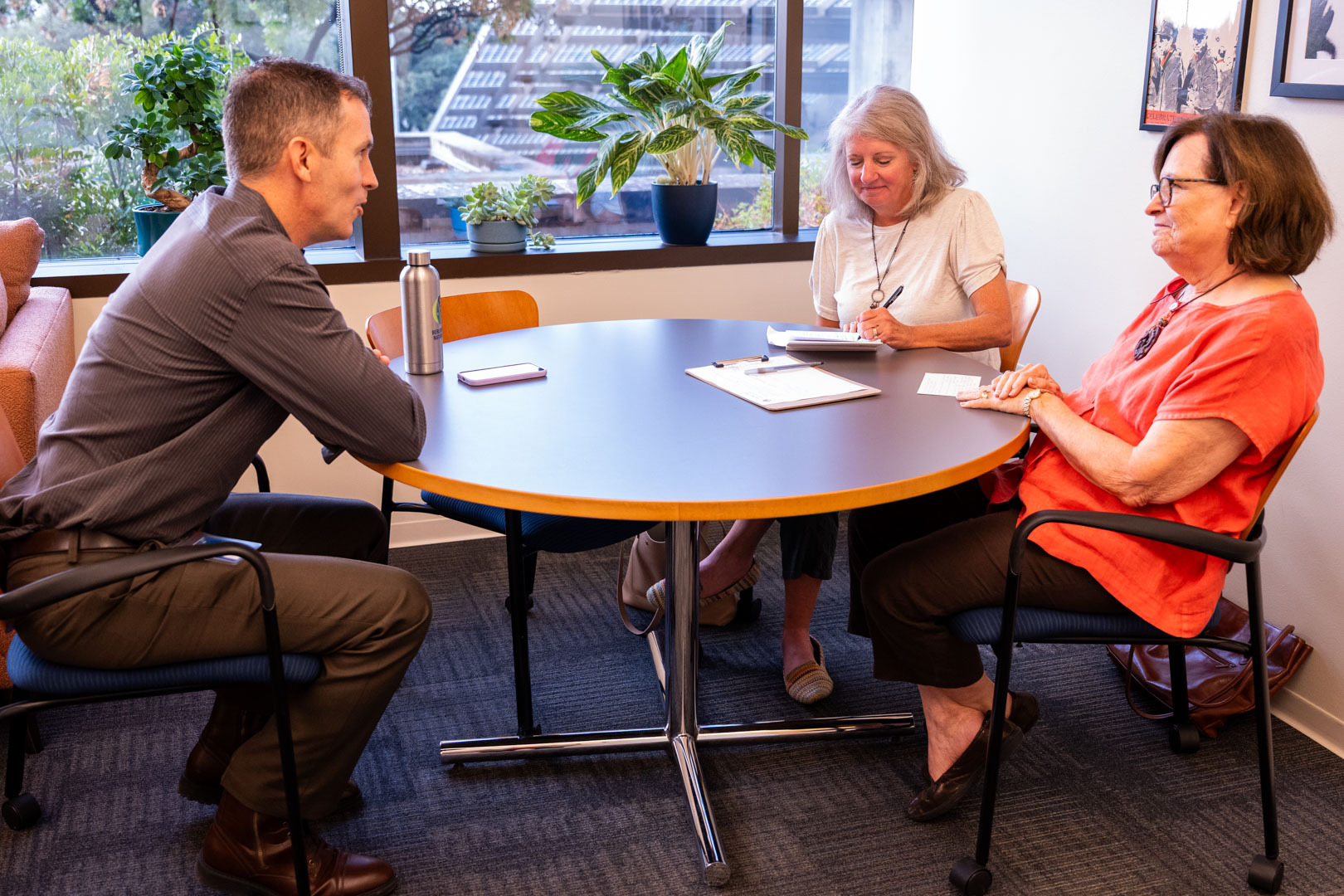
10/28/25
The League of Women Voters is a non-partisan organization. We never support or oppose any political candidates or parties, but we do advocate on issues that we have studied and on which our members have understanding and agreement. The Advocacy Committee of the Austin Area League visits local elected officials to share information about the League and its positions as well as to learn more about what our local region's elected officials see as key issues and priorities. This interview with Austin City Council Member Mike Siegel (District 7) is the first in a series of interviews with local elected officials during 2025 and 2026.
Interview with Council Member Mike Siegel:
Strengthening Local Government in a Time of Crisis
Council Member Siegel was elected in 2025 and his term runs through 2029. He sees himself as a progressive member of the City Council, and noted that while he is elected by his D7 constituents, he strives to represent the whole city. He describes himself as “principled and professional” and notes that he and his peers have a goal to agree as much as possible.
When asked about the most important issues facing Austin, Siegel noted that “we are in a time of crisis in our democracy” with the federal government withholding tens of millions of dollars and the state government taking hundreds of millions of dollars in recapture and tying our hands with revenue caps. He stated, “I hope that right now Austin can be an example of a strong local government, modeling our values of having an equitable, just and sustainable government. I seek to build trust in local government.”
He wants the District 7 office to be responsive to constituent concerns and strategic on policy. Related to constituent concerns, he noted that District 7 residents have voiced concerns on a variety of issues and his office has worked to address some of them by holding public meetings.
For example, many D7 constituents felt strongly about the Austin Public Library (APL) decision to close Recycled Reads. He shared his perspective that, in a time of book bans, the reality is that operating Recycled Reads was not core to the mission of APL. “Some of my constituents may have disagreed with me but they can count on me to show up and help separate truth from fiction.”
In terms of policy, Council Member Siegel had a large role in eliminating the Austin Police Department’s Automated License Plate Reader program. He is proud of his role educating his peers on the City Council about the use of data collected that violated expectations of privacy, while also hearing the concerns of residents related to data being shared with federal and state agencies, notably ICE and the Texas Attorney General. He cited surveillance concerns related to Austin’s immigrant community as well as individuals seeking abortions or gender affirming care. He called this a victory for privacy.
Learn more:
Austin American-Statesman - Austin city manager pulls controversial license plate reader program from council agenda
KUT Public Radio - Austin's automatic license plate reader program will end this month
HIs future policy goals include efforts to create enduring, affordable housing for the Austin workforce.
When asked where he sees Austin in ten years, he replied that right now we have to focus on “controlling what we can control” and have our city weather the storm by working to keep local government strong.
Siegel sees the biggest challenges facing Austin as
- State and Federal hostility which has the potential to decrease confidence in government while constraining our revenue.
- American cities are in decline. Coupled with the state constraints on revenue, how can Austin maintain our grid, facilities, and roads that were built years ago?
- The climate crisis, which puts pressure on our grid as well as increasing extreme drought and extreme flooding. He cited the tragic loss of two unhoused residents of D7 in recent storms.
Council Member Siegel concluded our time together citing his top priorities:
- A strong local government in a time of crisis for democracy
- Surviving the climate crisis
- Building housing for Austin workers
- Protecting Austin residents from mass surveillance
- Addressing Austin’s infrastructure needs